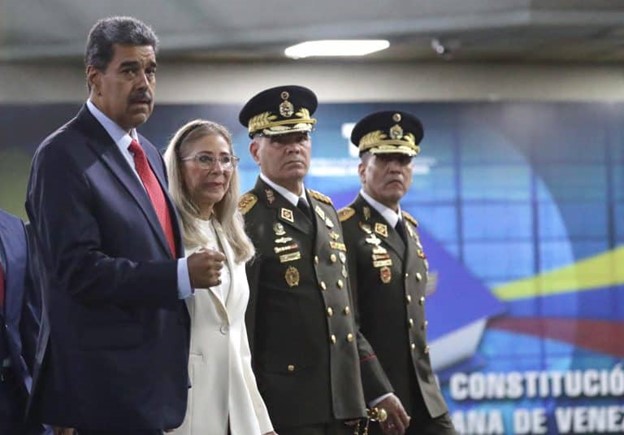in the aftermath of Venezuela’s presidential elections

Foro Penal: In the first week of protest and repression, there are at least 11 dead and 939 arbitrary detentions, including 90 minors.
By Carlos F. Chamorro (Confidencial)
HAVANA TIMES – Despite widespread repression, which targets young people especially, Venezuelan voters are keeping up the pressure on Nicolas Maduro’s government demanding the National Electoral Council show the voting results broken down by precinct, voting center and municipality, to clarify who the real winner of the July 28 elections was.
In the process, this repression has cost the lives of at least eleven people and the detention of almost a thousand more, including 90 minors and six people with different disabilities.
In a conversation on the program Esta Semana, human rights defender Gonzalo Himiob, director of Foro Penal, and Xabier Coscojuela, journalist and member of the Editorial Board of Diario Tal Cual, said that “people will not demobilize.”
“In 2017, the protest in Caracas was mainly from middle-class sectors. But this time, the protest came down from the hills, from north to south, and from east to west,” noted journalist Xabier Coscojuela.
What information has Foro Penal gathered about the consequences of the repression in these seven days? Fatalities, detainees, disappeared, human rights violations.
Gonzalo Himiob: Our count as of August 3 at 3:00 in the afternoon confirms 939 arbitrary detentions distributed throughout the country. The use of public force to try to neutralize the people who have come out to protest after the electoral process has been widespread. The data is corroborated.
Regarding the deceased, Foro Penal has confirmed 11 deaths in the context of the protests. This does not mean there are not more deaths, but because our verification protocols are very strict, we are very careful about disseminating data or figures that we have not been able to verify directly.
Foro Penal has volunteer lawyers throughout the country, and we have given them the task not only of providing free assistance to the victims of these arbitrary institutions but also of confirming beyond any doubt the events that may involve deaths or murders.
Within this overall figure, unfortunately, there are six people who are disabled: blind, deaf, people with Down Syndrome… there are even two confirmed cases of autistic young people, one of them a teenager.
Regarding disappearances, that term must be handled very carefully because, as the use of force has been massive, many relatives and many friends of young people —since the repression has focused primarily on very young people— report them as missing. But it is up to us to verify whether they are indeed missing or if they were arrested and can be located in any of the detention centers.
The governing party has threatened opposition leaders such as Maria Corina Machado and Edmundo Gonzalez with prison. However, on Saturday, we saw tens of thousands of people take to the streets to protest, both in Caracas and in different cities across Venezuela, in defense of the validity of their vote. Does the State recognize the right to civic protest?
Xabier Coscojuela: Relatively. So far, the State has not decreed a suspension of the right to demonstrate, but in some parts of Venezuela, there was repression against people who wanted to protest. In Caracas, they did not do it openly because there were so many people, and repressing so many people has a great cost. But in the City of La Victoria in Aragua State (just 100 kilometers from Caracas), people wanted to gather at the point where they had gathered on previous days, and it was taken by the public force to prevent it. In Caguas —another town in Aragua State— tear gas bombs were launched at those attempting to gather.
In any case, people continued trying to express their discontent with the announcements of the National Electoral Council and another by Nicolas Maduro’s government because they are defending their vote. They are not only defending the election of Edmundo Gonzalez Urrutia but also defending the decision they exercised. In 2002, during the coup against Hugo Chavez, there were people who said their vote had to be respected because they had decided to vote for Chavez.


